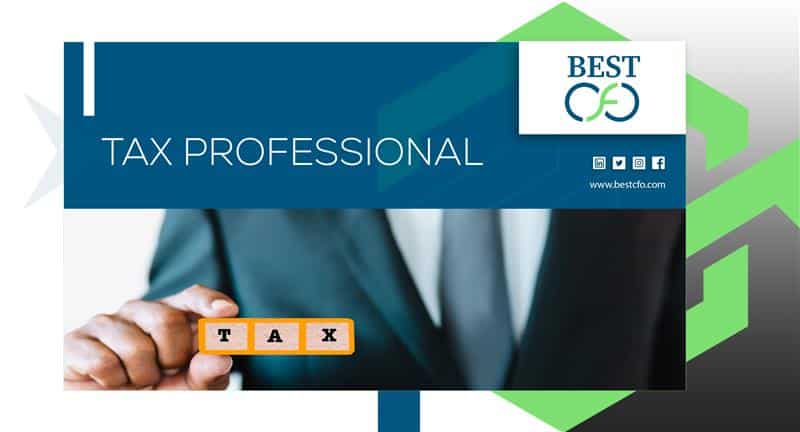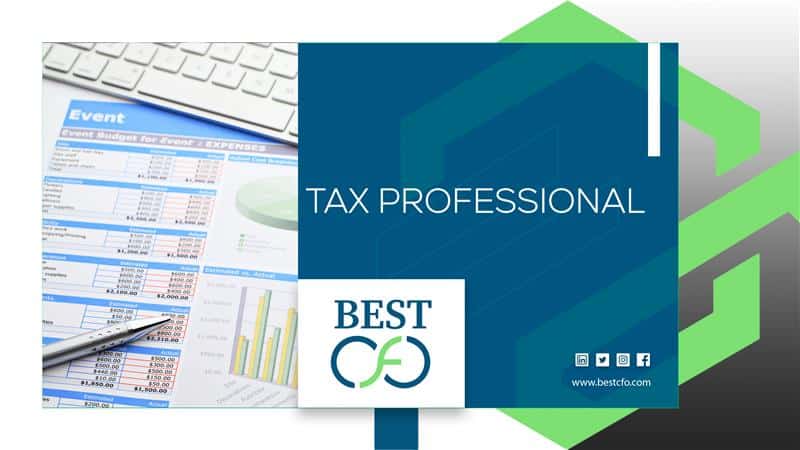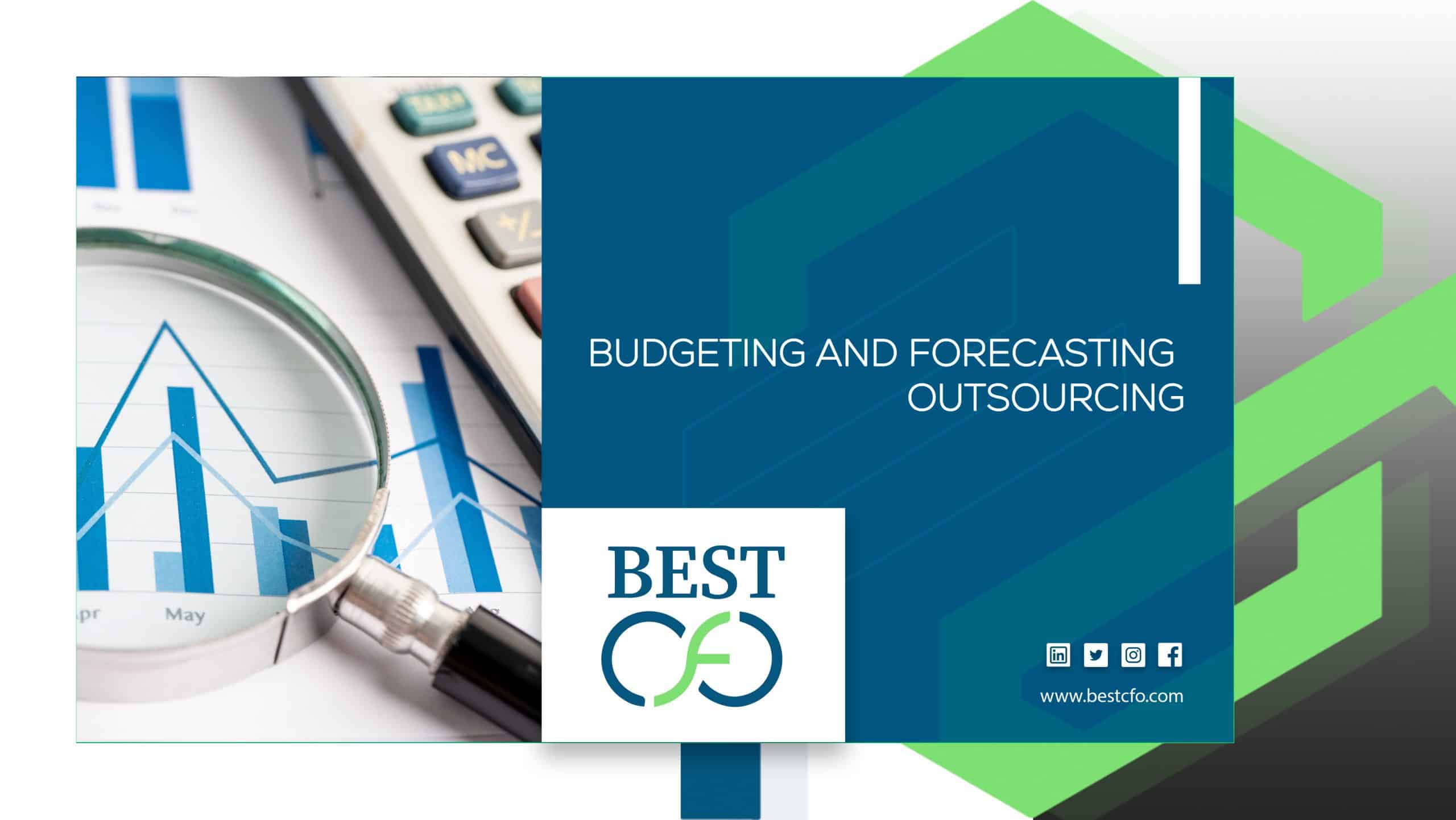
| Getting your Trinity Audio player ready... |
What Type of Taxpayers Requires the Help of a Tax Professional?
People who pay their taxes responsibly might wonder, what type of people require the help of a tax professional, and it’s a good question, as not everyone can do their taxes themselves, and apart from this, people who are self-employed have to pay their taxes separately as their tax doesn’t just get deducted from their paycheck like office working employees.
So, keep reading and you will find out who exactly is a tax professional, how they help people, and what sort of people they help.
First, Who Is a Tax Preparer Anyway?
Before explaining anything, you first need to know who is a tax preparer? A tax preparer is someone who is an expert and trained to help citizens and businesses file their taxes correctly. You can know a tax preparer by different names:
- Enrolled Agents (EAs) – licensed by the IRS
- Certified Public Accountants (CPAs) – accountants with state licenses and broad expertise
- Tax Attorneys – lawyers who specialize in tax law
- Or even experienced seasonal preparers
These guys file your taxes, maximize deductions and make sure that you are not committing a sort of fraud, accidently of course, because you misunderstood line 13 or Schedule C.
Do I really need a tax professional or am I just overthinking this?
Its not complicated if think clearly, its true that not everyone requires a professional help, but to be very honest tax season does get a bit overwhelming, most people just punch a W-2, click submit and you are done, it got done even before your coffee got cooled down.
But what about other? People who are running a small business, or people who have established a startup.
Imagine someone stuck in a question “Wait what! I am supposing to file my taxes in two states?” For these kinds of situations tax professionals’ step in, imagine them as your tax doctors any sort of tax hazard comes up and you end up getting a meeting done with a consultant.
Tax Preparer Duties (Yes, They Do More Than Just Play Around Numbers)
A real tax professional does more than just submit a return, they:
- Reviews all sources of income
- Identifies available deductions and credits
- Prepares forms for federal, state, and local returns
- Advises on tax-saving strategies
- Represents you in front of the IRS (if they’re an EA, CPA, or attorney)
Basically, they help you pay what you owe, but not a penny more.
Tax Preparer Areas of Expertise
Every situation is different for taxation, and even the fees vary depending on your tax condition.
Some Tax Preparers specialize in:
- Self-employment tax
- Real estate investment
- Crypto taxes
- Multi-state filings
- Foreign earned income
- IRS audits and resolutions
So, if your situation includes one or more of these elements, it’s worth calling in a professional.
Small Business Tax Preparer – A Lifesaver for Owners
If you are running a small business, startup, side hustle, or even as a freelancer, taxes for you more than just a once-a-year headache, you have to worry about:
- Business income
- Expenses to track
- 1099s (Yes, more than one)
- Estimated tax deadlines
- Payroll issues if you have contractors or employees
A small business tax preparer can help you:
- Classify expenses correctly (goodbye, audit risk!)
- Maximize deductions for home offices, internet, mileage, and software
- File quarterly estimated payments
- Choose the best structure for tax savings (S-corp, anyone?)
If you’re earning more than $30,000/year freelancing or running a side business, a tax pro is not optional—they’re essential. More the money, more the taxes, and more the procedures.
What’s the Difference Between a Tax Preparer, Tax Accountant, and Tax Consultant?
As much as they sound the same, trust me they are not synonyms, they are all different people with different duties.
Title | What They Do |
Tax Preparer | Files your returns accurately |
Tax Accountant | Helps with broader planning, bookkeeping, audits |
Tax Consultant | Strategizes for complex financial moves or tax minimization |
Think of it this way:
- Tax preparer = tactical
- Tax accountant = managerial
- Tax consultant = strategic
Bookkeeper vs. Tax Professional – Not the Same Thing
Trust us, they both are way different, one is like a Gastric doctor the other is like a dentist, both are doctors but with way different expertise.
- Bookkeeper = Tracks your financial transactions and organizes data
- Tax Professional = Analyzes that data and files tax returns or offers legal strategies
Both are crucial, but don’t expect your bookkeeper to give you audit defense or know about IRS tax codes.
How to Become a Tax Preparer (If You’re Thinking About It)
Apart from the training part, theoretically speaking anyone can become a tax preparer by doing their taxes themselves, but being a professional requires training and expertise.
To become a trusted tax preparer, one typically:
- Takes an IRS-approved tax course
- Gets a Preparer Tax Identification Number (PTIN)
- Gains experience with returns and deductions
- Pursues additional licensing (like EA or CPA)
Pro tip: If you’re ever hiring one, ask about credentials. Don’t hand your finances to someone who “just learned taxes on YouTube.”

What Type of Taxpayers Actually Need a Tax Professional?
Making it short, if you fall into the following categories, get yourself a tax professional ASAP instead of using a useless free software.
1. You’re Self-Employed or Own a Small Business
You have business income, clients, and expenses.
A tax professional ensures:
- You deduct everything legally
- You don’t trigger red flags
- You’re structuring your business for tax efficiency
2. You Work in Multiple States
Do you work remotely from Florida and your company is based in New York?
It might surprise you, now you owe taxes in both places.
A tax professional knows:
- Which states follow the “convenience rule”
- How to claim tax credits to avoid double taxation
- How to file multiple state returns
3. You Own Rental Property
Passive income = active tax complexity.
A tax pro helps you:
- Depreciate property
- Deduct repairs, maintenance, interest
- Handle 1031 exchanges legally
- Plan for capital gains
4. You Invest in Stocks, Crypto, or Real Estate
Every crypto transaction? Taxable.
Sold shares at a gain? Capital gains tax.
Own property overseas? Hello, foreign tax reporting.
This stuff is too complicated to guess. A tax consultant can help you:
- Navigate IRS Schedule D
- Track your cost basis
- Use loss harvesting smartly
5. You Got Married, Divorced, or Had a Major Life Event
Marriage, divorce, adoption, inheritance—all impact your tax situation.
A tax professional will:
- Adjust your filing status
- Maximize family-related deductions
- Handle trust or estate taxes if needed
6. You Earn Foreign Income or Work Abroad
U.S. citizens must report global income—no matter where they live.
A tax expert helps with:
- Form 2555 for Foreign Earned Income Exclusion
- Form 1116 for Foreign Tax Credits
- Avoiding double taxation legally
7. You Owe the IRS or Have Prior-Year Issues
Owe back taxes? Missed a filing deadline?
A tax professional or tax attorney can:
- Negotiate with the IRS
- Set up installment plans
- Help remove penalties and interest
7. You Owe the IRS or Have Prior-Year Issues
Owe back taxes? Missed a filing deadline?
A tax professional or tax attorney can:
- Negotiate with the IRS
- Set up installment plans
- Help remove penalties and interest
8. You Just Don’t Want to Risk Screwing It Up
Some people just want peace of mind.
If you’re stressed every year, second-guessing deductions, or worried you’ll get audited—a pro is worth every penny.
It’s Not All About Finances
Saving money matters but mental health comes first too.
Sometimes hiring a tax pro isn’t about squeezing every last deduction. It’s about:
- Not stressing for weeks
- Not losing sleep wondering if you filed wrong
- Having someone to call when you get an IRS letter
Life is already stressful. Don’t let taxes pile on unnecessarily.
Conclusion: Should You Hire a Tax Professional?
If you’re:
- Self-employed
- Multi-state employed
- A real estate or crypto investor
- Working abroad
- Facing IRS trouble
- Or just hate dealing with tax paperwork
Yes, you need a tax professional, no questions asked!
It’s not about being rich or complicated. It’s about making smart choices that protect your time, money, and sanity.
FAQ – 10 Most Asked Questions About Tax Pros
Is it worth hiring a tax preparer for a simple return?
Only if you’re unsure or uncomfortable. Otherwise, software might do the trick.How much does a tax preparer cost?
Anywhere from $150 to $600+ depending on complexity and location.Do tax preparers guarantee I won’t get audited?
No, but they reduce the chance and can help represent you if audited.What’s the difference between CPA and EA?
Both can file taxes; CPAs have broader accounting skills, while EAs specialize in IRS representation.Can I deduct tax prep fees?
Not for personal returns anymore, but yes if it’s for business or self-employment.What documents do I give my tax preparer?
W-2s, 1099s, expenses, last year’s return, and income summaries.Can tax professionals help reduce what I owe?
Yes, through deductions, credits, and strategy—legally.What if I worked in multiple states?
A tax pro helps file multiple returns and avoid double taxation.Should freelancers always hire a tax pro?
If income exceeds $30K/year or involves complex deductions—definitely.Can I switch tax preparers mid-season?
Yes, just ensure all prior documents are properly transferred.
Related Posts
From Finance to Future-Proofing: The Strategic CFO for IT
From Finance to Future-Proofing: The Strategic CFO for IT Suppose a traditional CFO sitting at…
CFO vs Finance Manager: Choosing The Right One For You
CFO vs Finance Manager: Choosing The Right One For You The finance world can be…
When Should You Outsource My CFO? – The Guide
When Should You Outsource My CFO? – The Guide Every business, no matter how small…
Top 5 Reasons Why You Should Outsource HR
Top 5 Reasons Why You Should Outsource HR Outsourcing is gaining popularity among businesses looking…
 Demos
Demos  Colors
Colors  Docs
Docs  Support
Support 










